Zest for life at 50+
Vitality and energy into older age
Fit and active into old age
You are in your prime, but you’re increasingly concerned about getting older and your overall wellbeing. Life expectancy has risen substantially in Canada over the past century to 83.9 years for women and 79.8 years for men. That is why it is important to take care of yourself throughout your life.
At the same time, there are changes that happen with the natural aging process, including weakened bones, reduced flexibility, urinary problems, sexual dysfunction, memory problems and lack of focus. However, healthy habits can slow the aging process. Follow a more wholesome diet and get regular exercise to prevent health problems. As a result, you can control your weight, improve your mood, combat disease and live a long, joyous life full of energy!
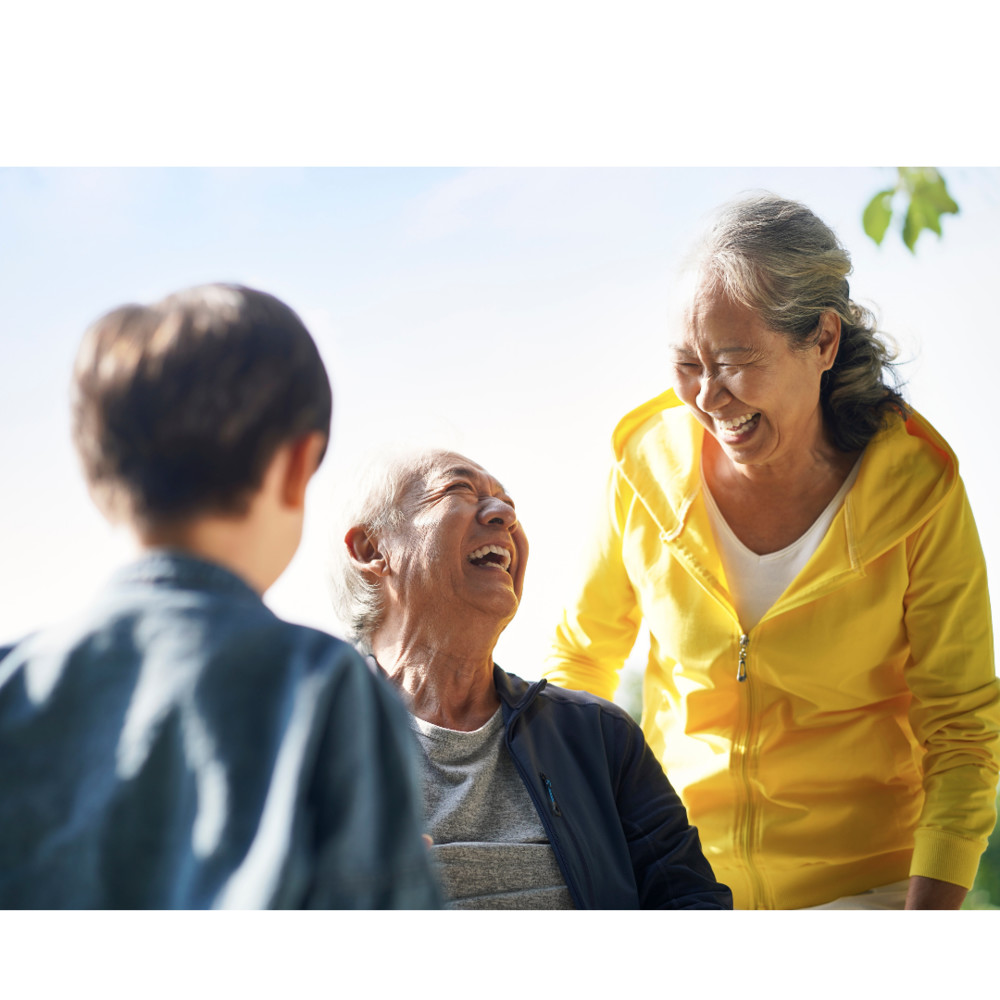
How to maintain and increase your quality of life in old age
- Exercise regularly to prevent the loss of muscle strength, while increasing your mobility, flexibility and balance. Exercise also reduces the risk of falling and bone loss. It can also help prevent diabetes by reducing excess weight and lowering high blood sugar levels.
- Consume a balanced diet to get all the important nutrients you need.
- A nutrient-rich diet and plenty of exercise also prevent menopause symptoms.
- Drink enough water, even if you’re not thirsty. The consequences of not drinking enough should never be underestimated: headaches, low blood pressure, urinary tract infections, forgetfulness and a tendency to fall.
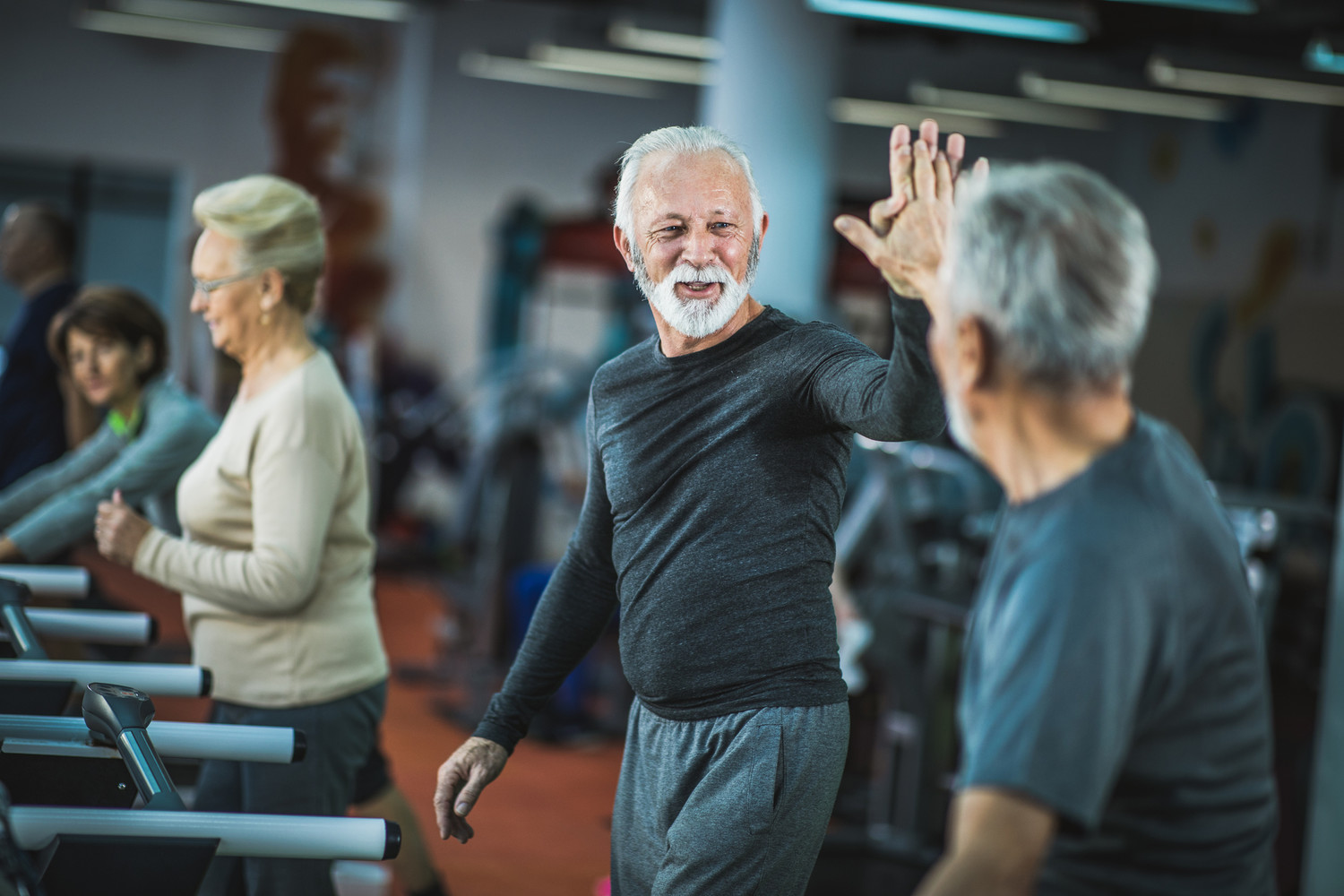
- Calcium and vitamin D slow down bone loss. In addition to sunlight, foods high in vitamin D include eggs, mackerel, cod liver oil, wild-caught salmon, tuna, sardines and mushrooms. Foods high in calcium include broccoli, watercress, parsley, sesame seeds, and almonds.
- In addition to good nutrition and regular exercise, fresh air, sunlight and sufficient sleep strengthens the body’s natural defences.
- Check your body weight on a regular basis. Both being overweight or underweight promote certain diseases. If necessary, seek advice from your family doctor.
- As the saying goes, “An ounce of prevention is worth a pound of cure.” Which means, it’s better to prevent a disaster than deal with one! Discuss with your family doctor whether a specific preventive method is suitable for you.
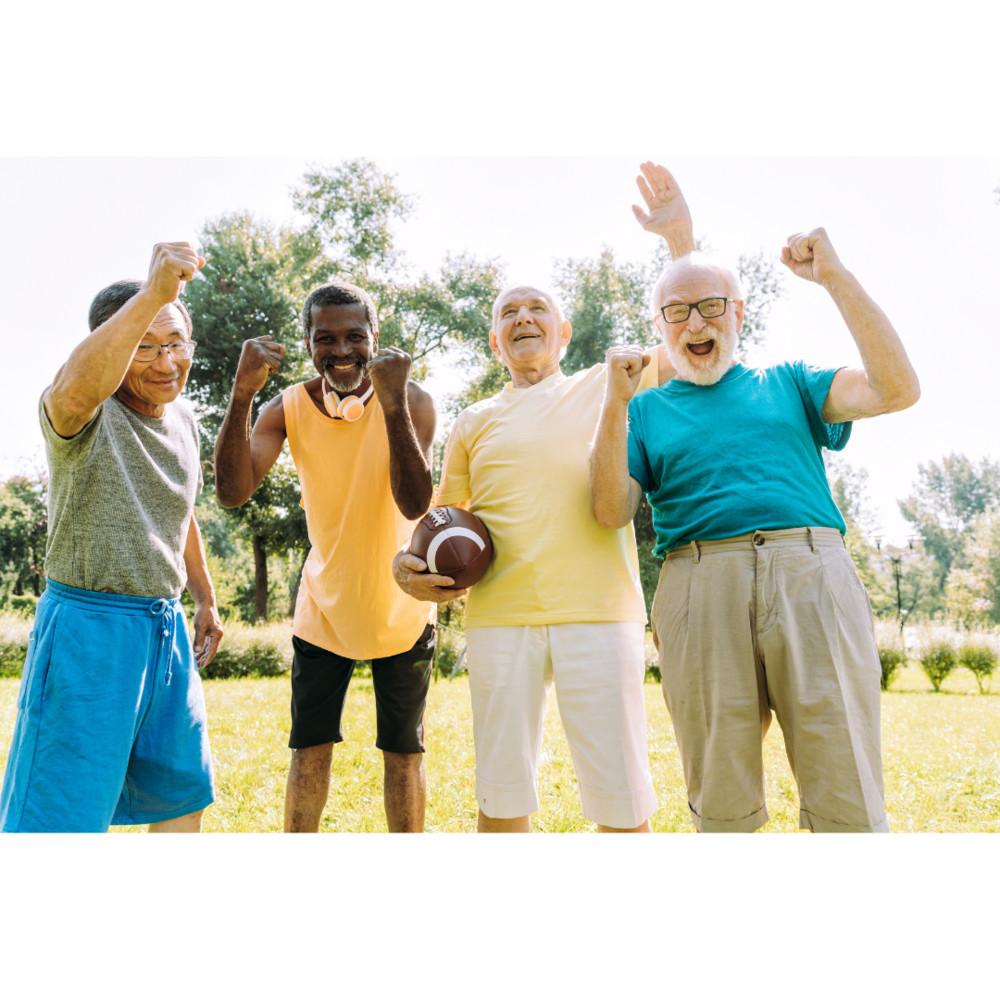
How to consume a nutrient-rich diet?
In old age we need less energy than before. At the same time, the demand for nutrients, vitamins and minerals remains high. Which foods and eating habits help prevent weight gain or a nutrient deficiency?
Nutrients that are crucial for your body as you age include calcium, vitamin D, vitamin B12, folate (folic acid) and zinc. It is important to understand how each nutrient interacts with one another. For instance, a vitamin B12 deficiency may prevent the body from processing folate. Stress can also slow down the absorption of nutrients. A balanced, harmonious lifestyle can therefore play an important role when it comes to your nutrition plan.
These nutrients are crucial:
- The interaction of calcium and vitamin D is important to consider. For instance, calcium and vitamin D both maintain bone density. Calcium-rich foods include broccoli, watercress, parsley, sesame seeds, and almonds. The body is able to make vitamin D through sunlight exposure. Vitamin D is also found in eggs, mackerel, cod liver oil, wild-caught salmon, tuna, sardines, and mushrooms.
- Vitamin B12 is important for important metabolic processes since it helps to break down certain fatty acids. It also supports blood formation by converting folate (folic acid) into a form that the body can use. Vitamin B12 is found almost exclusively in animal foods, especially wild-caught salmon, Atlantic mackerel, sardines, grass-fed beef, beef liver, lamb, dairy products and eggs. Top foods sources of folate include avocado, asparagus, Brussels sprouts, broccoli, beef liver, egg yolk, legumes, whole grain products, and leafy greens like romaine lettuce and spinach.
- The trace element zinc is important for the immune system. Zinc deficiency weakens the body’s defences and makes you more susceptible to infections. Even wounds do not heal as well if you have insufficient zinc in your body. Zinc-rich foods include lamb, grass-fed beef, chicken, pumpkin seeds, hemp seeds, cashews, almonds, cocoa powder, spinach avocado, chickpeas, lentils and oat flakes.
- Vitamin E, vitamin C, carotenoids and other antioxidants “trap” free radicals and thus strengthen your body’s defence mechanisms. If you eat a lot of fruit and vegetables regularly, you will obtain sufficient antioxidant nutrients.
If you don’t drink water, you’ll really damage your health
Not getting enough fluids has major effects on your body and mind. You will experience headaches, low blood pressure, and urinary tract infections, as well as typical signs of old age such as forgetfulness and a tendency to fall. This is because too little fluid intake worsens short-term memory and the way you process information.
- Drink between 2 and 3 liters (8.5 to 12.5 cups) of water per day.
- Make it a habit to drink small amounts (about 100 ml each time) at regular intervals throughout the day.
- If you don’t feel thirsty, you can fool yourself by preparing mineral water every day in the morning in separate water bottles. This will help you keep track of how much you actually drink throughout the day.
- Water, unsweetened herbal teas, and freshly-squeezed fruit and vegetable juices are ideal.
Your Metabolic Balance meal plan calculates the exact amount of water for you.
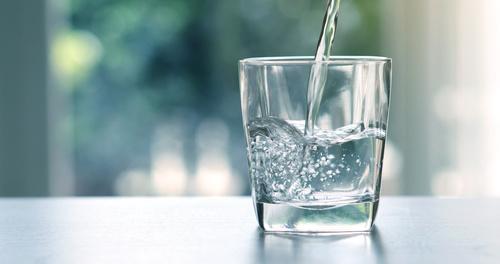
How to enjoy menopause
You have menopause, but you don’t have to experience symptoms. There are many positive ways to deal with hormonal changes and relieving your menopausal symptoms. Some of them include exercise and a natural diet with plenty of high-fiber fruits and vegetables and free from processed and refined foods.
Most women transition through menopause for five to 10 years. For some women the symptoms start at 35, while it may begin around age 50 for others. In any case, it is helpful to recognize that menopause is a critical stage in your life. What’s the secret to get through this stage? Menopause can be a confusing time and that is why you need to face this new challenge with self-confidence!
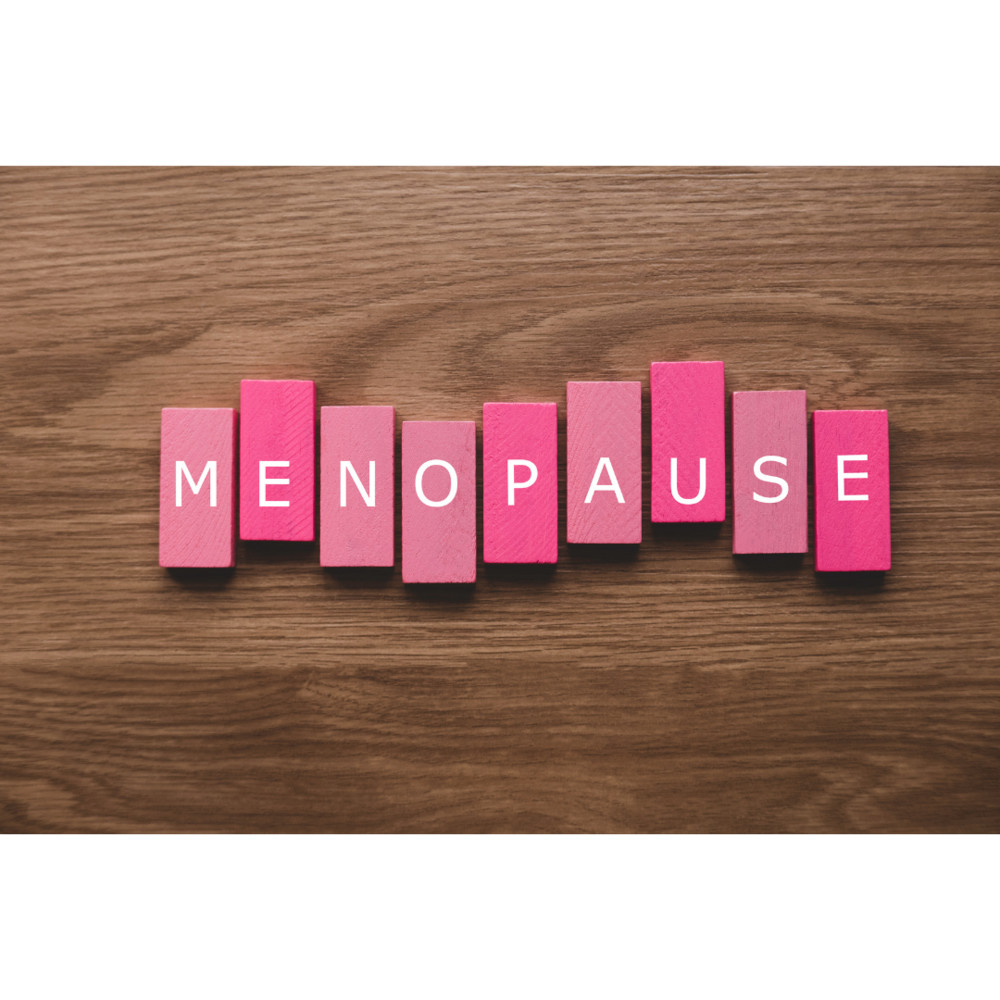
What happens to the body and the mind?
Often, physical changes that are the first signs of reaching “middle age.” As a result of the hormonal changes, the ovaries gradually cease their activity and the production of the female sex hormones estrogen and progestin decreases. Menstruation becomes more irregular and eventually stops altogether. Many women complain of hot flashes and sleep disorders. The muscle mass decreases and so does your daily energy requirement. Ladies who do not change their diet will quickly gain weight. In turn, this increases the risk of diabetes, high blood pressure, lipometabolic disorders, and cardiovascular diseases. The ups and downs of hormonal changes also affect the mental health of many women and as a result they may experience mood swings, such as anxiety, depression and irritability. Your lust for life is also gone and you feel hopeless and empty inside.
Nevertheless, we encourage you to consider a better approach for your menopause. The following are a few tips to help you get through menopause naturally.
Our tips:
- First, rethink your lifestyle and diet! A diet change can lead to a metabolic change and this will restore your hormonal balance. For example, the Metabolic Balance meal plan is absolutely ideal to deal with your diet, simply because it is individually tailored to your needs. If your blood analysis shows a calcium deficiency, the meal plan will suggest a particularly high amount of calcium-rich vegetables. Fermented soy products like natto contain phytoestrogens, which is frequently recommended during the menopause. Phytoestogens are plant-based estrogens that mimic the effect of estrogen in the body.
- Gynaecologists who work with Metabolic Balance report that up to 70% of the participants who have menopause were able to reduce their medication and in some cases, even stop taking it altogether.
- Celebrate your new change! A positive attitude is more effective than any medicine. Menopause is a natural part of life. The female body also follows the rhythms of nature. Try to see this as an opportunity for a new start to better understand of your womanhood.
- Movement is also important. Exercise plays an important role during menopause. We recommend moderate exercise, such as cycling, walking or swimming. This not only releases the feel-good hormone serotonin, but it also benefits your bones and muscles.
The menopausal man – is it an identity crisis or a new beginning?
Men also enter menopause - also called andropause and have to deal with physical and mental changes after a certain age on. What’s important? Do yourself and your body a lot of good – and start new projects.
In comparison to female menopause, men have significantly fewer symptoms since male menopause are rather gradual. However, men may still experience typical menopausal symptoms. The psychological challenges of this phase of life should not be underestimated.
Typical symptoms for the altered hormonal balance in men include:
- A reduced libido and erectile dysfunction
- Reduced beard growth and hair loss
- Less muscle growth, but more fat deposits
- Bone loss and joint pain
- Hot flushes and sweats
- Mental health symptoms such as being sensitive to insults or criticism, irritability, restlessness, nervousness and depression
Do you have an identity crisis? What comes next?
Regardless of the physical changes, many men find it difficult to realize that they have male menopause and many even experience a mid-life or identity crisis. If you identify strongly with your career and identity, you will probably have feelings of loss and the fear of not being able to keep up or do the work you once did.
Our tips:
- Remember what you have achieved! Then calmly think about the important projects you would like to tackle next. What goals, visions and dreams motivate you going forward?
- Exercise in moderation is helpful. It will gradually reduce your weight, which in turn will raise your testosterone levels.
- It’s a good idea to change your eating habits and consume a hormone-balancing diet. The Metabolic Balance meal plan is a perfect fit as a suitable nutrition program. As a result, you will experience fewer andropause symptoms.
How to eat right with high blood pressure?
Nutrition plays a key role in hypertension. Naturally lower your blood pressure by following a few rules while eating.
High blood pressure (hypertension) affects about 5.3 million Canadians, according to Statistics Canada. Hypertension also affects 2.6 million adults aged 65 and over. Normal blood pressure will have a systolic of 120 to 129 mm Hg and a diastolic reading between 80 to 85 mm Hg. When does blood pressure become too high? A high blood pressure diagnosis has a reading with a systolic (upper) number of 130 mm Hg (millimetres of mercury) and higher and a diastolic (lower) number of 80 mm Hg and higher.
However, the good news is, hypertension can be treated. Professional medical treatment and taking the right medication are crucial. Regular exercise and relaxation are just as important. Numerous studies have now proven that you can also significantly lower your blood pressure with certain foods.
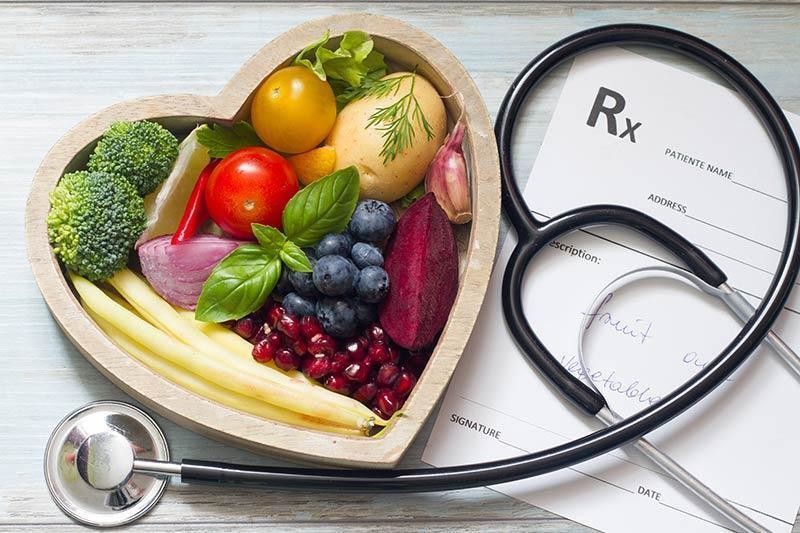
Nutritional tips to combat high blood pressure:
- Avoid fatty, salty and processed foods. People in industrial nations are particularly affected with hypertension due to their unhealthy lifestyle.
- Do not drink alcohol or at least drink it in moderation. Alcohol increases inflammation and blood pressure and also promotes weight gain – a risk factor for high blood pressure.
- If you are overweight, a nutrient-dense diet can help you maintain a healthy weight. Your blood pressure would drop by about 1 mmHg per kilogram of body weight lost.
- Another risk factor of high blood pressure is a diet high in saturated fat, including sausage, butter and palm oil. On the other hand, foods high in omega-3 fatty acids and mono-unsaturated fatty acids lower blood pressure, such as flaxseed oil, wild-caught fish, walnut oil, extra virgin olive oil and avocados.
- Reduce your salt consumption to a maximum of six grams per day by avoiding processed and packaged foods with a high salt content. Bread, hard cheese and sausages also contain a lot of salt. Instead of table salt, use herbs and spices for cooking. Be creative in your choices. Some options include oregano, thyme, basil, dill and cayenne pepper.
- The Metabolic Balance meal plan recommends a more Mediterranean diet with lots of fruit and vegetables, seafood, just a little meat and healthy fats.
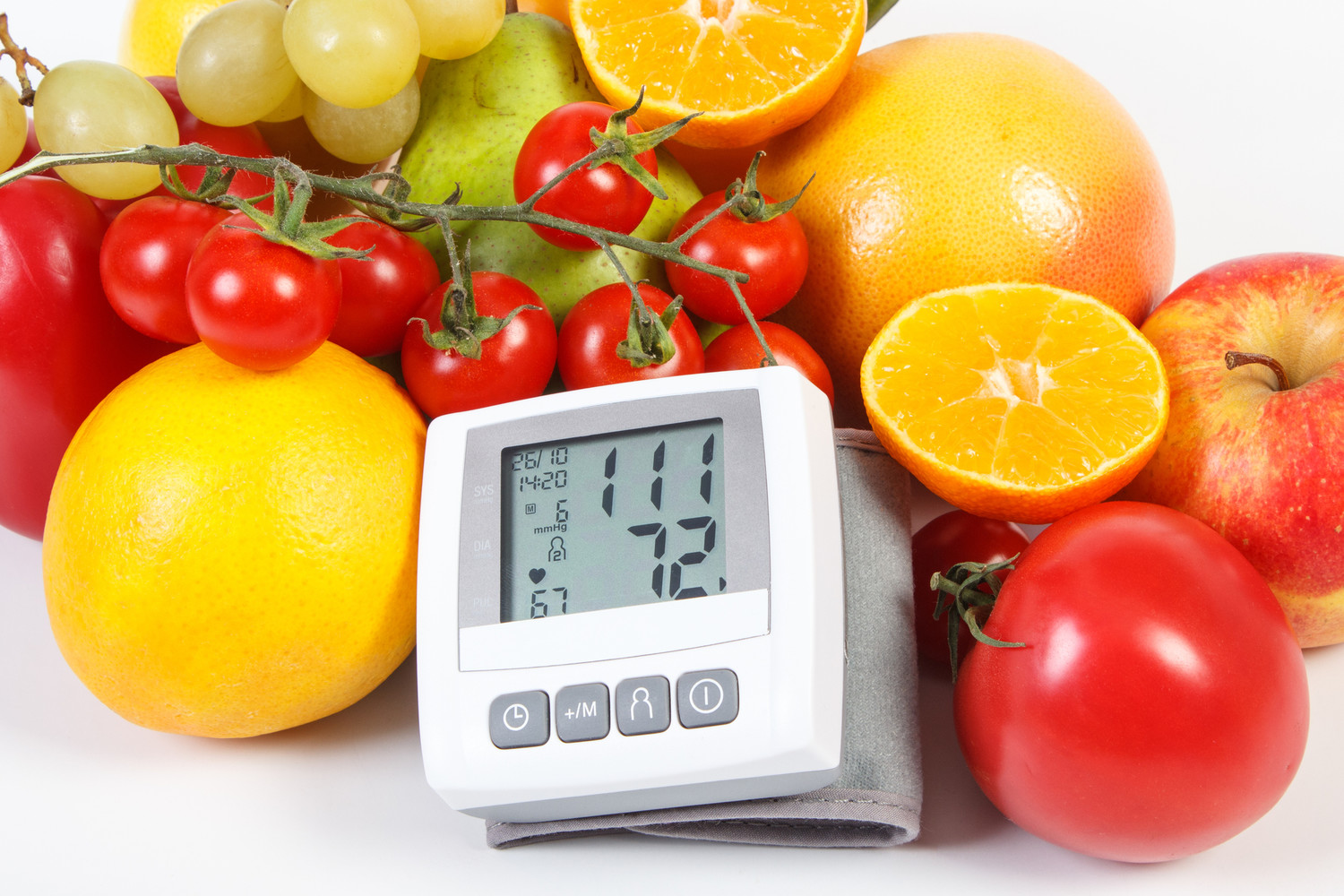
Tips to add more exercise in your life
Those who exercise regularly not only reduce their risk of chronic illnesses, but also keep fit mentally and physically. But how active are you each day? What can you do to establish new healthy habits?
The lack of exercise is a real health risk. This applies to children and young people as well as for young and older adults. Regular exercise strengthens the immune system and is therefore the best protection against diseases such as diabetes, osteoporosis, depression and high blood pressure. Exercise also helps us to maintain a healthy body weight.
Physically-active people can remain fit and healthy into old age. However, the older you get, the harder it can be to start new, healthy activities, especially if you’ve never been keen on sports or exercise. With a change in diet, enzymes such as Foxa-2 increase, and this activates your need to move.
Every step counts
- The rule of thumb is to reduce the time you spend sitting. For example, you can stand while on the phone or walk through your home while on the phone.
- It’s best to do more walking and a Fitbit or step counter can help with that. Walking overall will improve your leg strength. Also, climb the stairs instead of taking the elevator.
- When shopping and doing your errands, ride your bicycle rather than take your car. Take a walk again after lunch during the lunch break.
- You haven’t exercised regularly in a while? Seek advice from your doctor to tell you about the benefits and potential risks.
- What sport or physical activity do you enjoy? If you pick something you enjoy, you’ll be more motivated to do it on a regular basis.
Which sport is the right one for you?
Our bodies love sport and exercise right into old age. Depending on your health, level of training and personal preferences, certain sports or exercises are more appropriate suitable for you. Try several sports and activities and discover which ones you enjoy the most!
Each type of movement demands the four levels of endurance, mobility, muscle strength and balance to varying degrees of intensity. A sport or exercise is the right one for you if it suits your needs, you are physically able to perform it, and you enjoy it! However, in those with osteoporosis and overweight individuals, only certain types of exercise are best for you. It is also a good idea to work with a personal trainer who will tailor an individualized workout plan based on your specific conditions and goals.
The following are specific workouts for endurance, mobility, balance and building muscle.
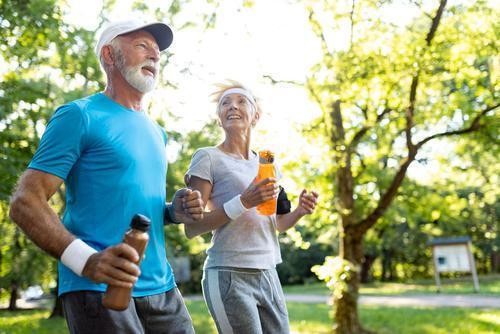
Endurance
In endurance exercises, the body is in motion over a longer period of time. Typical endurance exercises include walking, hiking, jogging, speed walking, Nordic walking, cycling and swimming.
The big advantage of endurance sports/exercises is that:
- They can be started at any age.
- You can integrate an endurance sport/exercise into your daily routine at any time.
- Previous experience, such as in ball sports, is not required.
- Endurance sports and exercises provide effective protection against cardiovascular diseases, including heart attack, heart failure and coronary heart disease.
Strength
From climbing stairs to carrying shopping bags, we need strength for many everyday activities. Those who have firm muscles also have stable bones, healthy joints and an upright posture.
You can increase your physical strength through strength training, such as lifting weights or using the special exercise equipment at the gym.
Mobility
Elasticity and flexibility are crucial for your quality of life and they help you avoid damage to your posture.
Exercises that promote mobility include:
- Yoga
- Tai chi
- Qigong
- Stretching exercises
These gentle movement exercises benefit the mind and body. Although you can perform these exercises at home with video guidance, you can also learn from personal trainer or professional yoga, tai chi or qigong instructors.
Balance
Balance has a positive effect on both your body and mind. Luckily, you can improve balance with a little bit of training. How do you improve your balance? As a basic principle, bring your body into an unstable position and remain upright and straight. Another typical balance exercise is standing on one leg. The benefit of these balance exercises is that they can be done at home.
